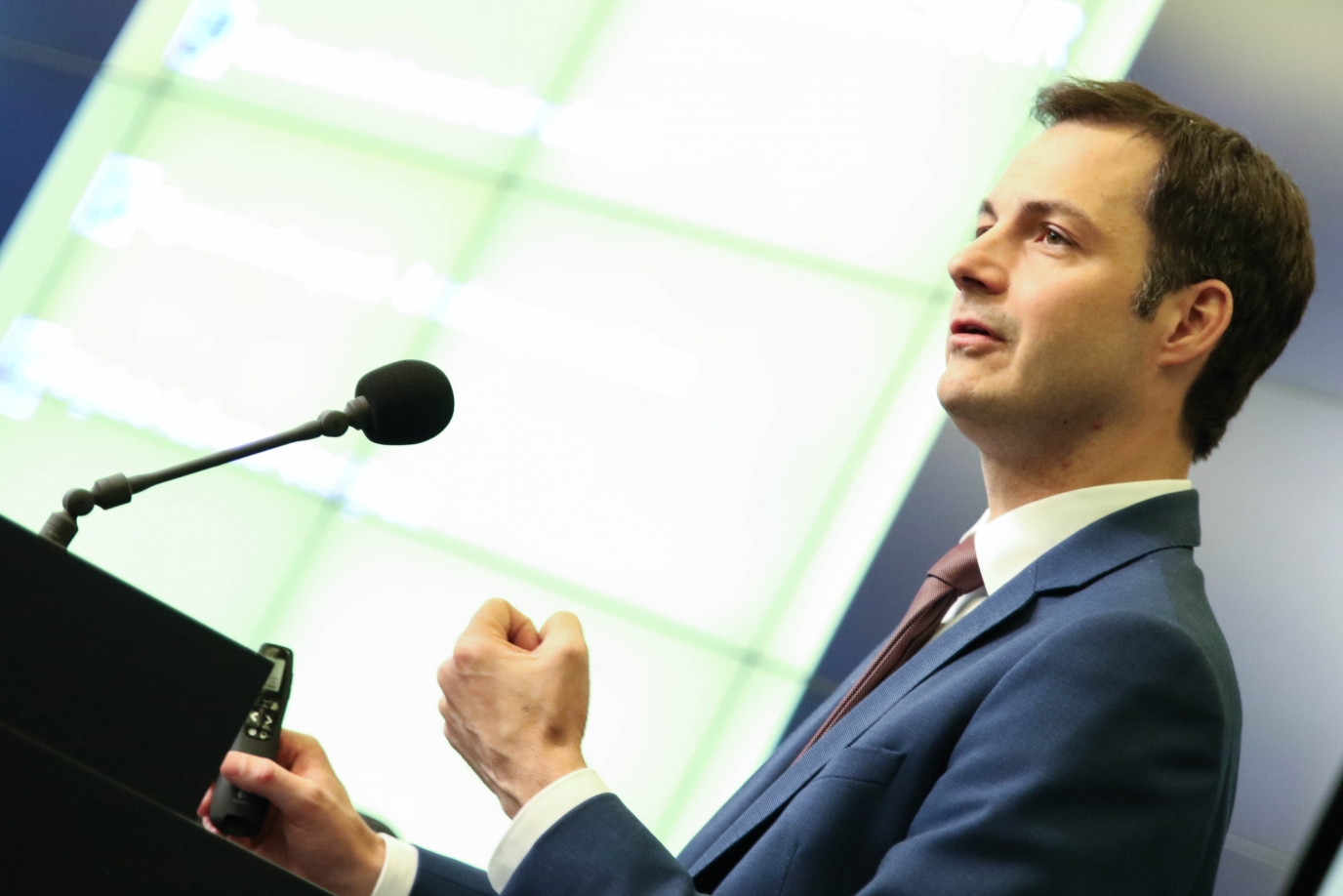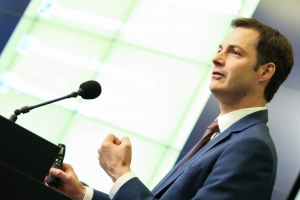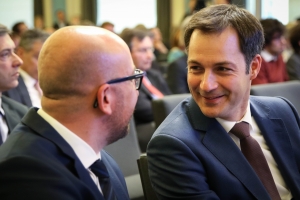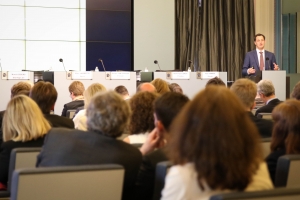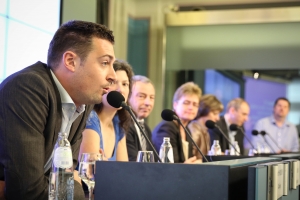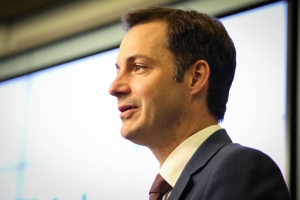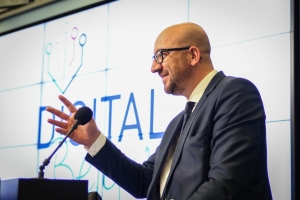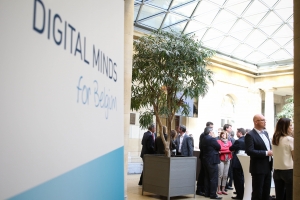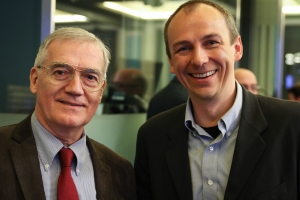Action plan Digital Belgium goes for growth and jobs
Deputy Prime Minister and Minister of Digital Agenda and Telecom, Alexander De Croo, and the ‘Digital Minds for Belgium’ today presented ‘Digital Belgium’. The objective of the plan is to achieve growth and jobs through digital innovation over the next years. Prime Minister, Charles Michel, also supports the plan.
‘Digital Belgium’ came about these last months after many contacts, talks and work visits. Together with Alexander De Croo, the ‘Digital Minds for Belgium’, a group of about twenty leading professionals with deep-rooted experience in the digital world, poured the points of interest into the ‘Digital Belgium’ plan.
Several stakeholders in the digital ecosystem today attended the presentation of ‘Digital Belgium’. Belgian Internet pioneer, Robert Cailliau, made a lively plea at the start to convince youngsters to choose for a digital future.
Jobs, welfare and well-being through digital innovation
The aim of the ‘Digital Belgium’ action plan is to create growth and jobs through digital innovation. The plan is not without engagement and has set three clear objectives. “The digital switch will renew our entire economy. Moreover, the plan is not devoid of ambition: by 2020, Belgium must be in the European top three of the most advanced countries in digital terms, we want at least 1,000 new start-ups in the digital sector and 50,000 new jobs in the whole economy,” says minister De Croo.
Five clear priorities in terms of content
Based on five priorities in terms of content, ‘Digital Belgium’ wants to strengthen Belgium's position on the digital map.
1.Digital economy
2.Digital infrastructure
3.Digital skills and jobs
4.Digital trust and digital security
5.Digital government
For each of these pillars, three to six priority projects have been developed. A number of initiatives are already in the start-up phase, and their specific impact is expected in the coming months. For instance, a couple of weeks ago, on Alexander De Croo's proposal, the government launched a Start-up Plan and the federal government rolled out e-invoicing for its suppliers.
Other initiatives put forward by ‘Digital Belgium’ will be launched in the coming weeks and months. They include a ‘National Alliance for digital skills and jobs’, a plan for the roll-out of high-speed Internet, a ‘Digital Health Valley’ and a strategy for open data.
Prime Minister, Charles Michel, is glad that the federal government has adopted an ambitious digital strategy: “The growth prospects in the digital field are huge. We are facing an interesting but massive challenge. ‘Digital Belgium’ will make Belgium stronger and create extra growth and jobs.”
From Digital Belgium to a digital world
To conclude, Alexander De Croo underlined that digitisation not only offers huge opportunities in Belgium, but is also a worldwide driver for development and democratisation. It lowers the entry in the formal economy for people, simplifies the registration of children at birth and eliminates corruption. Real time monitoring of telecom data allows a more precise and efficient organisation of aid in case of humanitarian disasters.
“Last week, I strongly argued at the United Nations and the World Bank that digitisation is an important consideration when drawing up the Sustainable Development Goals, the international development agenda for the next fifteen years which the United Nations will lay down in September. In the European Union, Belgium is also working on a European digital coalition, a group of countries which support our proposal for Europe to push forward digitisation as a priority in the international development debate.”

